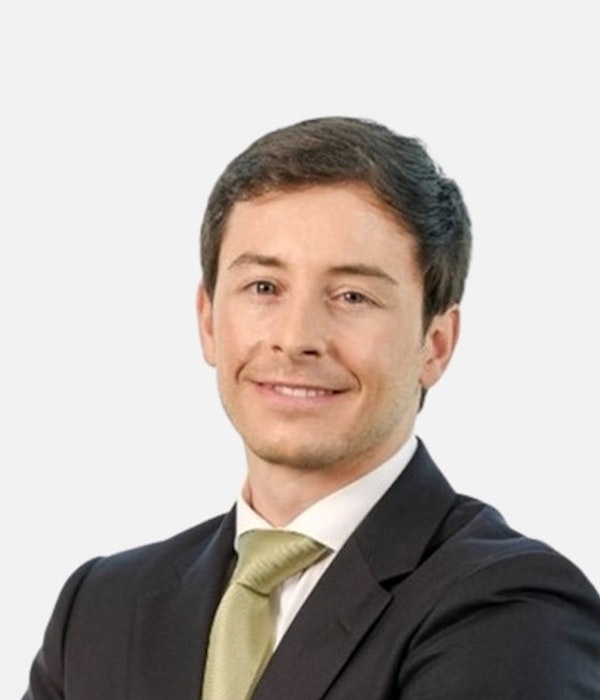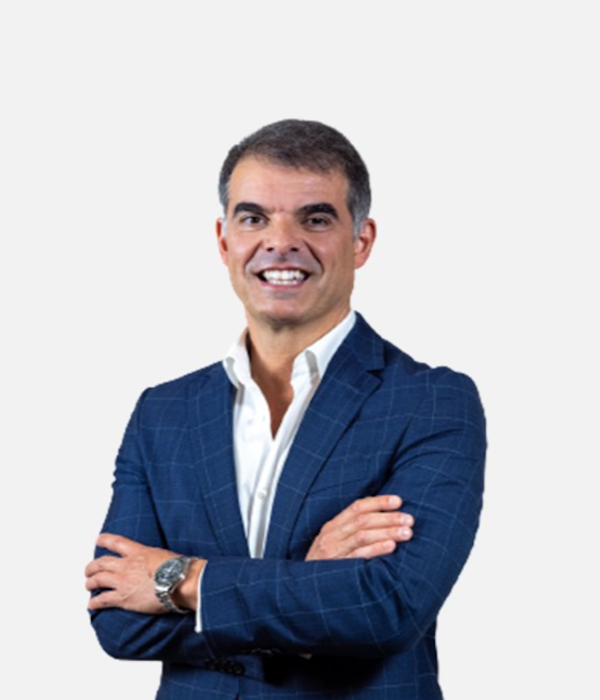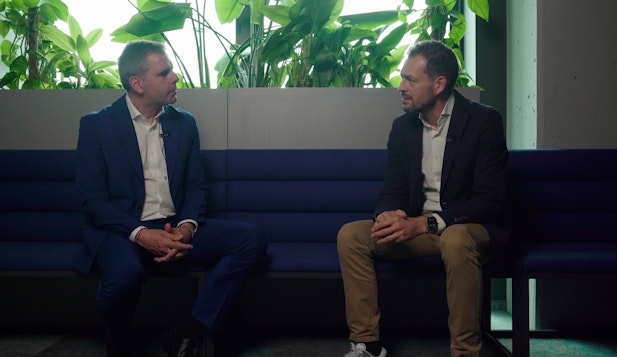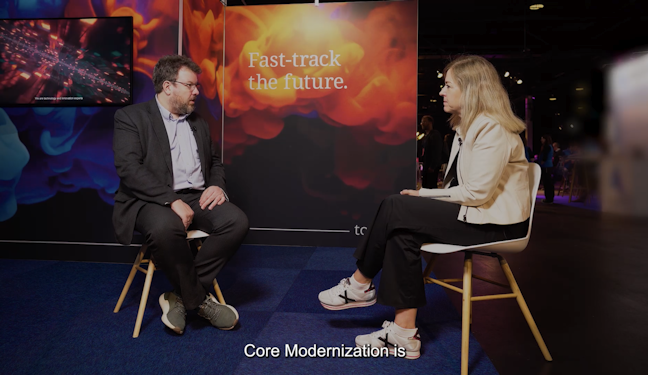
Unlock the Ecosystems Power with Allianz' Embedded Insurance Strategy
Nuno Albuquerque e Castro, Head of Insurance at NTT DATA Portugal, and José Francisco Duarte Neves, CTO and CMO at Allianz Portugal, give a look into the intricacies of embedding insurance into the consumer’s everyday lives. How important is the brand awareness for consumers to trust in your company? What transformations must undergo to certainly plug into the ecosystems? The answers in this Insurance Dialog.
Speakers
Nuno Albuquerque e Castro
Head of Insurance at NTT DATA Portugal
Transcription
Welcome to NTT DATA Insurance Dialogs. Today we have José Francisco Neves, Chief Transformation and Marketing Officer of Allianz in Portugal. Welcome, José!
José, one of the things I'd like to address with you today is we feel that insurance companies, nowadays, have been adapting to the market and obviously have been launching new products and marketing new products in the market.
What do I feel? I feel that more and more, and this is a trend and has been for some years now, the customers themselves want to buy, but are also unaware of what they want to buy.
Allied to this, and if we look at the protection gap that exists, recent ASF studies show what seems to us is that we increasingly feel that there is a large protection gap in society. This happens for several factors.
One of the first factors that we can list, for example, is the lack of tax benefits. But there is also some lack of understanding about what the insurer’s business is, on the part of the policyholders. And there you have it, when you ask the question of buying something that has a direct benefit, for example buying a car, or a trip, versus buying a product that doesn't have as tangible and direct a benefit as, for example, insurance, what we feel is that the first priority is not the purchase of insurance.
And what we also look at in the market and have seen increasingly as a trend, is that insurers are looking to embed insurance within what daily transactions are, and the various partners they may have, these are countless examples.
For example, IKEA in Switzerland, I don't know if you are aware of it, IKEA in Switzerland sells multi-risk home contents insurance, or, for example, there is talk and cogitation that Apple itself will launch in 2024a health insurance, very much based on the information that the Apple Watch can transmit in parallel and obviously, in partnership with an insurance company to get information about what, or to have information about what the insured is from the perspective of creating a value offer much more tailor-made to what the customer's reality is.
So, there are countless examples as well. I’ll give another example, which is the subject of scooters, the example of the scooters which, in the end, serve to solve a mobility challenge of a client, who goes from point A to point B, through a service that is provided and that is embedded, or embedded, within the service, has personal accident insurance.
So, my first question to you has a lot to do with this which is: How does Allianz faces this challenge, these difficulties and obviously this trend that we are seeing in the market?
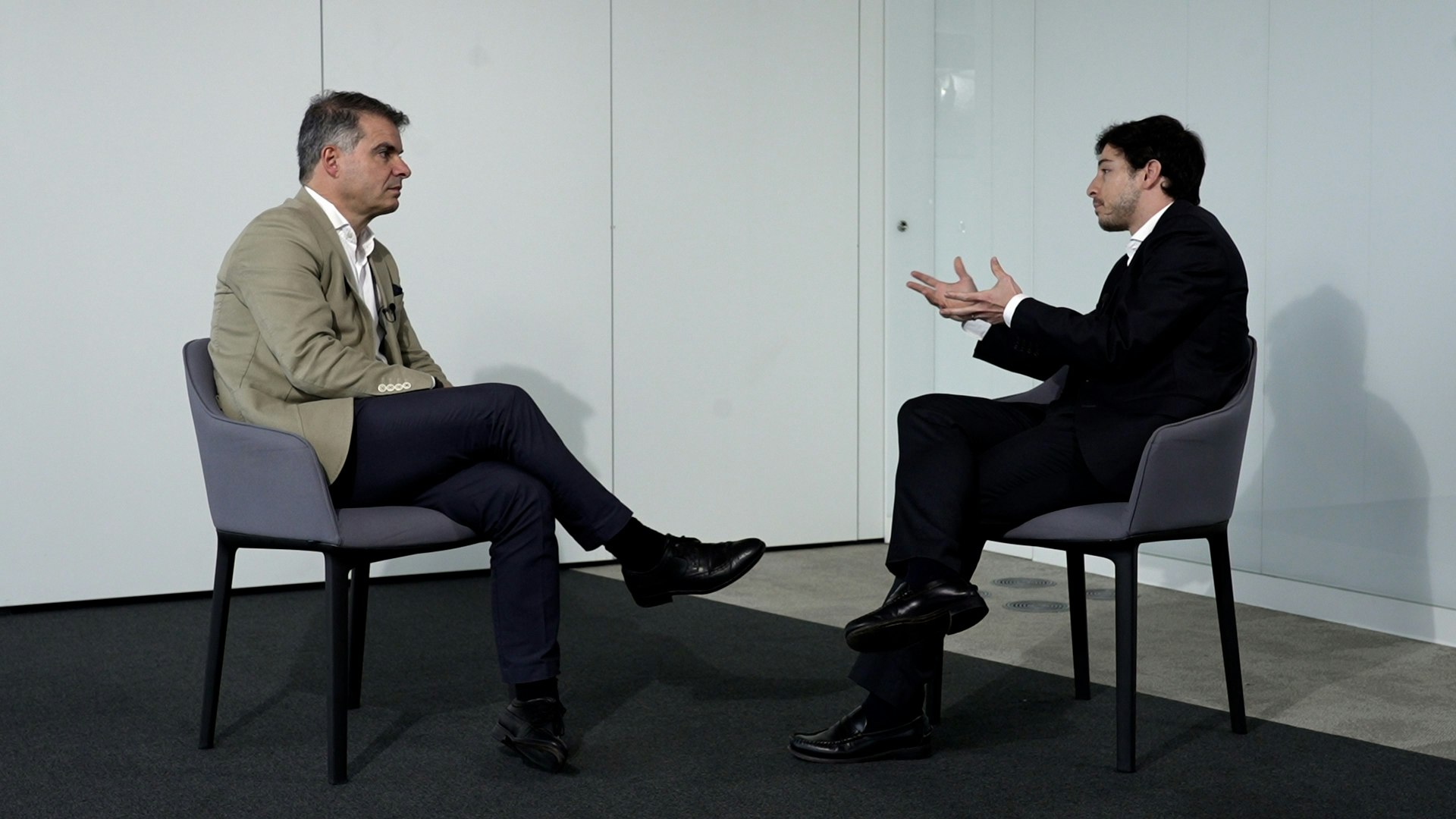
Well, first of all, thank you to NTT DATA and thank you Nuno for this invitation. It is a pride for us Allianz to be called to speak with you and with so many people, with so much knowledge about these topics of NTT DATA. You know that this is a theme that we have, and I personally have been working and I've been thinking a lot about it.
Actually, you are right, there is a protection gap here more and more obvious and what is interesting is that we talk every day that clients are different, they are more. They know better what they are looking for, they are more informed, they have more capacity to reach to knowledge and this protection gap does not diminish.
Therefore, there is something that is not working well, isn’t it? Because the client has evolved a lot and once again, I reaffirm, is more and more informed, so why would a client more and more informed continue to have so much difficulty in buying insurance that he is not obligated to buy?
And you touched on a very important point, which has to do with the insurance that is already included in the final offer, and we have been working hard on this.
Unfortunately, we have been working more theoretically, than in reality, or practice. And why theoretically? First, I think that all insurance companies, and not just Allianz Portugal in this case, all the companies, still have some difficulty in looking at the insurance offer as not being the most important thing. In other words, companies have to first realize that they are not selling the most important product. This is very difficult.
As you can imagine, it would be the same thing as me telling you that the product that you sell also wasn’t the most important when you are around a customer. That is not very easy to accept. But quickly you have to take that path.
And then look at the ecosystem, to the various ecosystems. We, for example, have, theoretically still a way of looking at these things, which is what we call three plus one, what is the three plus one?
It's three kinds of offers and then one more that you will already understand what this "one more" is. Three types of offers tend to try to occupy this open space.
We have the first one, which is an offer that already exists normally when we are, for example, working with a bank and we already have it, as all other companies do, where someone sells through us this product, and that someone sells a more important product and then everything is fine.
We've all done that step, when we sell, when a bank sells a credit and has within that credit insurance, nobody asks questions. The worst is when we are not talking about a bank or not talking about an entity with which we feel we are on the same level. This may sound a little shocking, but it's true, on top of everything else me being the one to say it, being from an insurance company.
Then we have two more alternatives also to look at these various solutions. One where, we look at the ecosystem and then yes, we try to get the "owner" of that ecosystem, the main product of the ecosystem takes insurance with him.
There is an example quite easy to understand which is, for example, a car. When you go to buy a car, you have the insurance there, already offered, nowadays when we go to buy a car, we can choose various rims, several types of rims, but if we don't want to choose it already comes with it.
Nobody will think about buying a car without a rim on it. So, it's the same thing with insurance. But you see, this is a giant step. I’m just comparing insurance to a car rim. But actually, for the customer it’s one more important service that he has to have, to make the car run. In this universe of analysis, it is just as important for the customer to have a car part as it is insurance, otherwise, he can't drive the car.
Then finally we try to look at those partners who have powerful databases and that have a strong relationship with the clients and take advantage of that relationship to tell you: "Look, you should offer your clients this insurance." That can, in this case, not even be involved in a master product, just use that application. Finally, these are the three solutions that we are, at least theoretically, working on.
And lastly, there is this one more, which is the one where, for example, we will talk about a broker. There it's already a strong partner entity of the insurance activity. It is part of it, isn't it? And it is a broker who, for example, has the capacity to sell to his clients a specific niche product, imagine a cyber risk, a cyber product, and he puts it all together, it has its way of selling, and it just needs someone who gives them the risk.
So, we say that "three plus one" where the “one” the only thing that the company isn’t giving is the risk. It has absolutely nothing to do with the product. The product may not even be branded in this case, in the name of Allianz, and it just appears as a risk. We only give the risk.
Therefore, I think that we are working on these ideas, even because the only way that we have to diminish this protection gap is to help the client. And I'm always very careful when I say this helping the client thing because I don't want to be understood as the one conditioning the client's will. We all know, the people who collaborate with the client, we don't have the capacity, nor do we want to have it, to define or limit the client's will. Therefore, what we are doing here is to make their lives easier. They go on their way; they go about their normal business, and we offer insurance.
Just to give you an idea of these insurances that are built into the main product. Allianz has a vast network of football stadiums and has one, the Allianz Arena, in Munich, (on top of that Munich is our headquarters), and it's the most important one, that when you buy a ticket to see the game, you have insurance. Without doing absolutely anything.
Of course, this also has a lot to do with the prices and with the capacity that we have. But I think there is a huge market. But more than a market is this obligation that the companies have to diminish what you said at the beginning of the protection.
It is true that by diminishing the protection gap we also gain from it because we sell more, but here we have an important mission, which is to provide the customer with what we are here to do, to guarantee him the risk and then also do what we also say every day, at least here at Allianz, which is: “Don't worry about these little things like insurance, live your life and we are here to help you.” And that is what we have to do.
Exactly.
And looking here at what is your strategy and what you were saying regarding the client. Indeed, the goal is to inform the customer and increasingly to be an informative partner and to help the customer also to prevent several claims.
And this protection gap is a super important theme, because of the earthquake issue, and the issue of savings, and we know that the insurance industry is also making an effort to try to sensitize what is the fabric of your clients in Portugal to make this happen.
A lot has to be done, but the client has to be put at the centre of what your strategy is. What kind of strategies are you, in this case as Allianz, developing to put the client at the centre of your business activity?
Do you know that one of the things that we have all learned is that we should give the customer a voice? Do you know that thing that everybody says? “Listen to what the client has to say, listen, listen”
That is not a new thing. We have been hearing this for a bunch of years. But this is the heart of it, you know, and the truth is how do we do that? How do we give the customer a voice? And more than listening to the client is to give them a voice because sometimes we listen to the client, but we are not even listening.
We have a very funny process that has to do with the Five Star Rating, and we are probably the only company in Portugal that does it.
The Five Star Rating is published even on our site. You go there and see exactly what rating we have been given by our clients. You can see it on the website, visible for everybody, what the client has to say, good or bad.
What Booking? But this is it? You get there and see, and if you want you even do something remarkably interesting which is to see the negative reviews first. You make your selection.
But then we have another very important step, which is, when a client who interacts with us gives us an evaluation below two, including two, the person within Allianz who is responsible in some way for that interaction has a time limit to call that person, and to talk to that person and to explain or to ask him/her why you gave us for example, two stars in that action.
And this is all monitored. It is not a call whenever you feel like it, no. It has an SLA to fulfil, knows exactly when it has to fulfil it and then does somehow a report of what was the conversation with this client.
From these conversations with the client and from the comments that the customers give us when they give us the stars, we have truly clear actions on this. And, therefore, here there is not only this mission, this theoretical will of talking to the client or giving voice to the client.
We give voice to the client and then we interact with him to understand why he gave us that action and, obviously, after this work all the rest is easier, which is to act on it. Well, the rest is easier to act or not, but actually, you have everything to do. It is up to us, then we can no longer say we don't know.
Then we have another metric which is an international metric which is the NPS, which also forces us to do some work here. It is a group metric, and therefore we have KPIs to fulfil in terms of NPS. To get an idea, Allianz Group does not allow any company not to be the market leader in NPS in the country it is in. This is all very easy to talk about but to be able to deliver and be Loyalty Leader level in a country like Portugal, obviously, others will say the same thing.
I know Portugal, with companies that have been here for many years, that have a very powerful brand, because the NPS actually goes beyond the question of service quality. It also has a lot to do with the brand, with this brand feel, and so being Loyalty Leaders requires us to do a very intense job.
Therefore I would say to you that although the customer has always been at the centre of what are our obligations, and our desires, in the last two years we have been doing a very intense job, both on the level that I just explained to you from the Five Star Rating and this capacity of talking to the client, all of this has a name is VOC - Voice of Customer, and also the NPS and all the work that we have been doing of the NPS.
Just to give you an idea, we did a measurement, it wasn't with you, it was with a competitor. We did a measurement and realized what was the gap that we had for Loyalty Leader, and we have 42 actions to fulfil by the end of 2023, which will take us by 2024 to being a Loyalty Leader in NPS. Then, if we aren’t, you can see. We will be here to help in these actions too. And in fact, you will help, because many of these actions are some of those that I have also talked about and we need your help.
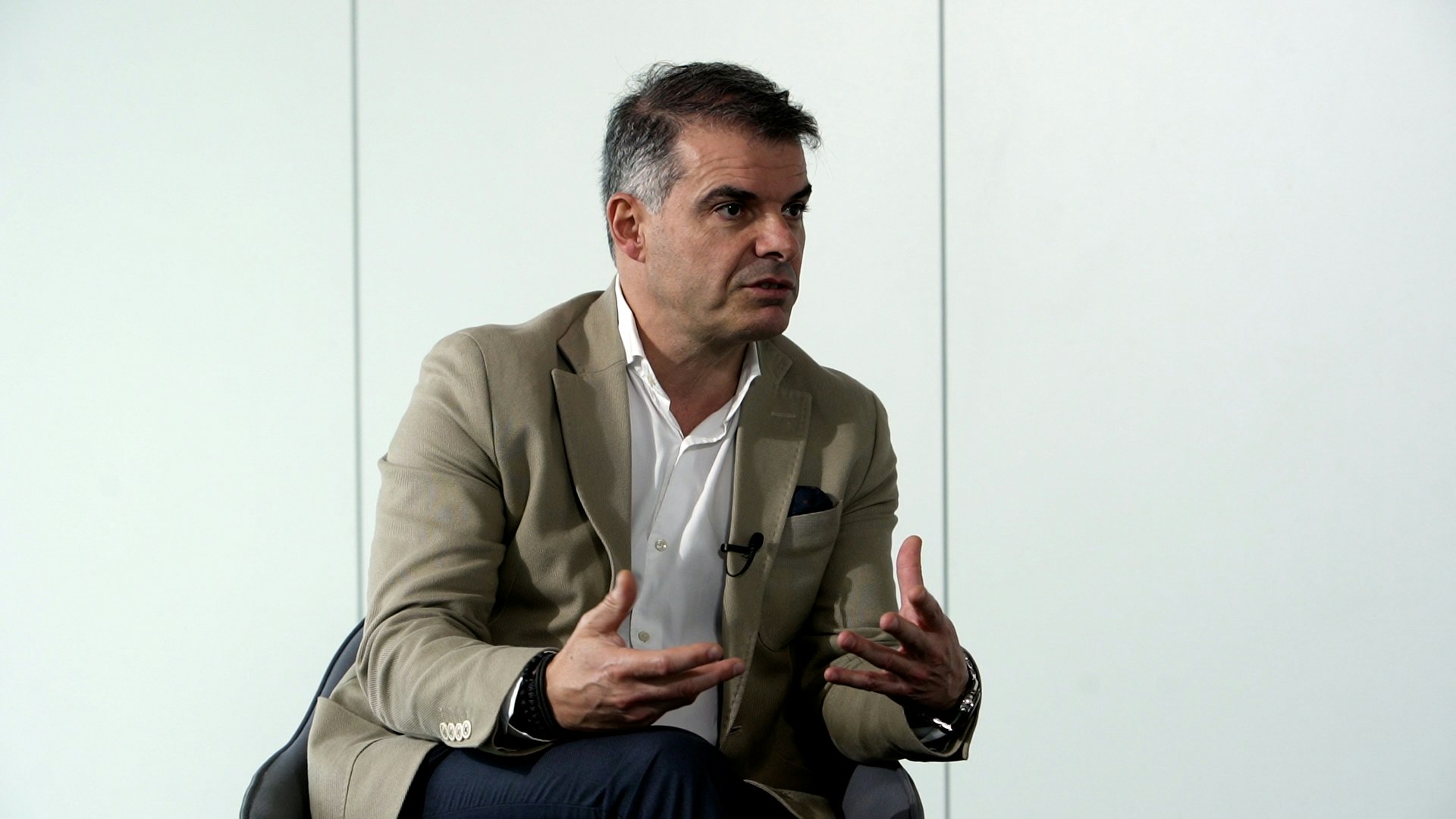
Exactly. Another thing that is also important and that we have been talking a lot about is the awareness of the Allianz brand. Allianz according to the latest Interbrand survey is the most valuable insurance brand in the world and therefore congratulations on that.
But it's a big responsibility as well. The commitment to the theme of sustainability, and diversity issues, but also what you have been doing recently, with the association, for example, to what sports are all about, whether it's surfing or the Allianz Cup, is something that has allowed you to grow.
But it is a constant challenge because you obviously have a significant effort to reinvent yourselves on a daily basis. You have recently created a new advertising campaign also, that having insurance is almost like knowing how to swim. But in fact, this is something that is important, to convey a message of partnership with the client. Being here, “don’t worry”, and in fact, at the same time, trust Allianz to be, in essence, the definition of these bases so that the client can live his life and can almost know how to swim.
How does it work, this process of reinventing the marketing almost daily that has to exist? And you have to constantly be challenging yourselves, because obviously to remain a leader, in this case in terms of the insurance brand in the marketplace, is a noticeably big challenge. How does this work? What are the challenges that you feel and what do you plan to do or are planning to do? Obviously, within what you can disclose because you have to be always in the front line.
Well, being a responsible brand manager in Portugal is, as you say, an immense responsibility. Why is that? Because we manipulate the brand which is, as you imagine and as you just said, the most valuable brand in insurance.
We in Portugal have our contribution as a country to the total value of the brand, but we are aware that we are not, obviously, who contributes the most to this value. Now we are also aware that if we do something wrong, the impact that what we did wrong has on the brand is really powerful.
Because it is true that we are a small country and therefore we contribute little to do well for the brand. In our own way, we will certainly contribute, and we will take care of that. But if we do something wrong, you believe that the impact that the brand can have with this is very damaging.
And therefore, we have an immense responsibility. What is it that helps us? Allianz is really a multinational company in the sense that we have a proximity to the brand, to the decision centre of Allianz, very close and we are always being somehow confronted with, the needs that they have or desires that they have, but we constantly have here an open communication from one side and the other so that we know exactly what we should or what not to do in relation to the brand. That is clear.
Although we are very autonomous, we have levels of...how shall I put it, of connection and information of what we have to do, strong guidelines, a lot of what we should and should not do in relation to the brand.
Now, you said things here, for example, like our connection to football here in Portugal or the connection to surfing, which are purely and simply our decisions. But even at that level, when we take the Allianz brand and put it into football, we have, as you can imagine, a huge concern, which is, how football can do good.
Certainly, we know it does a lot of good because it is the biggest brand publisher that there is in Portugal. Whether you like football or not, it’s true. But we also know that it can do a lot of harm. As I usually say, having a press conference after an Allianz Cup Final Four where the president of some club goes there to talk about everything but the game, is terrible.
And, so, we are always here a little bit with our hearts in our hands, as they say, about what might happen.
Now, you also talked about the campaign that we have. It is an international campaign and has exactly this principle that you also mentioned, which is: “Don’t worry, get ready for your life, use the good things that life gives you, enjoy life and we are here to help you".
Because actually taking out insurance is quite easy. It's what the brand says. And we have to comply. Because it is true, as I also mentioned earlier that NPS is not only service level, and it's not just service quality, it is very much the brand!
But you can't have two things dissociated from each other. You can make a powerful marketing campaign. You can every day look at the brand and promote the brand, but if you don't have a quality of service if you don't have a level of service good for the client, if the customer complains, forget it. So, you see, we work a lot on the brand, but we also work on the VOC, that's Voice of Costumer when we give the voice to the customer.
What are we going to do more with the brand this year here in Portugal? Just to give you an idea, and to understand how the brand is really a multinational brand, we are still going to have this week's marketing team of the group, in Portugal doing a piece on how Allianz Portugal is dealing with the severe weather.
They are going to talk to a company agent and a claims adjuster to understand how we operate. And that shows that the brand is a multinational brand and that it really has a strong proximity to each of the countries.
And this is an example of things that we do, but we will continue to bet on the Allianz Cup, it is a fundamental brand promoter for us.
It is evident that many people still say League Cup, but we continue to bet and push hard for it to be Allianz Cup. And we believe that increasingly it’s becoming Allianz Cup. We like that the Allianz Cup is referenced with positive football, and that's what we always say. We make an association to the brand and also to sustainability doing some very funny things that have to do with the number of goals we score in the Final Four. The ones we score, I mean, that the players score in the Final Four and we exchange the goals for, last time it was for food, but we've also exchanged them for trees at the time of those very strong fires in Portugal.
And this year we are certainly going to act at this level. We will exchange goals for something else certainly, for the good of society. Surfing for us is a way to reach a little bit different layer of the population, and also to convey the image that the companies are not as grey as they appear in people's minds, that insurance is a grey thing, but you know they are not.
Because you work with us, and therefore you know that insurance is no longer grey at all, but there you go, you have to do that too.
But it is in fact a theme, even in the very recruitments that we have. Insurance always appears in the view of being a grey area. There it is, it’s that so-called thing that we talk about, where people buy in the hope that they can never use it and in fact, it makes the market very grey in that perspective. And this has to change, and these actions are fantastic as well.
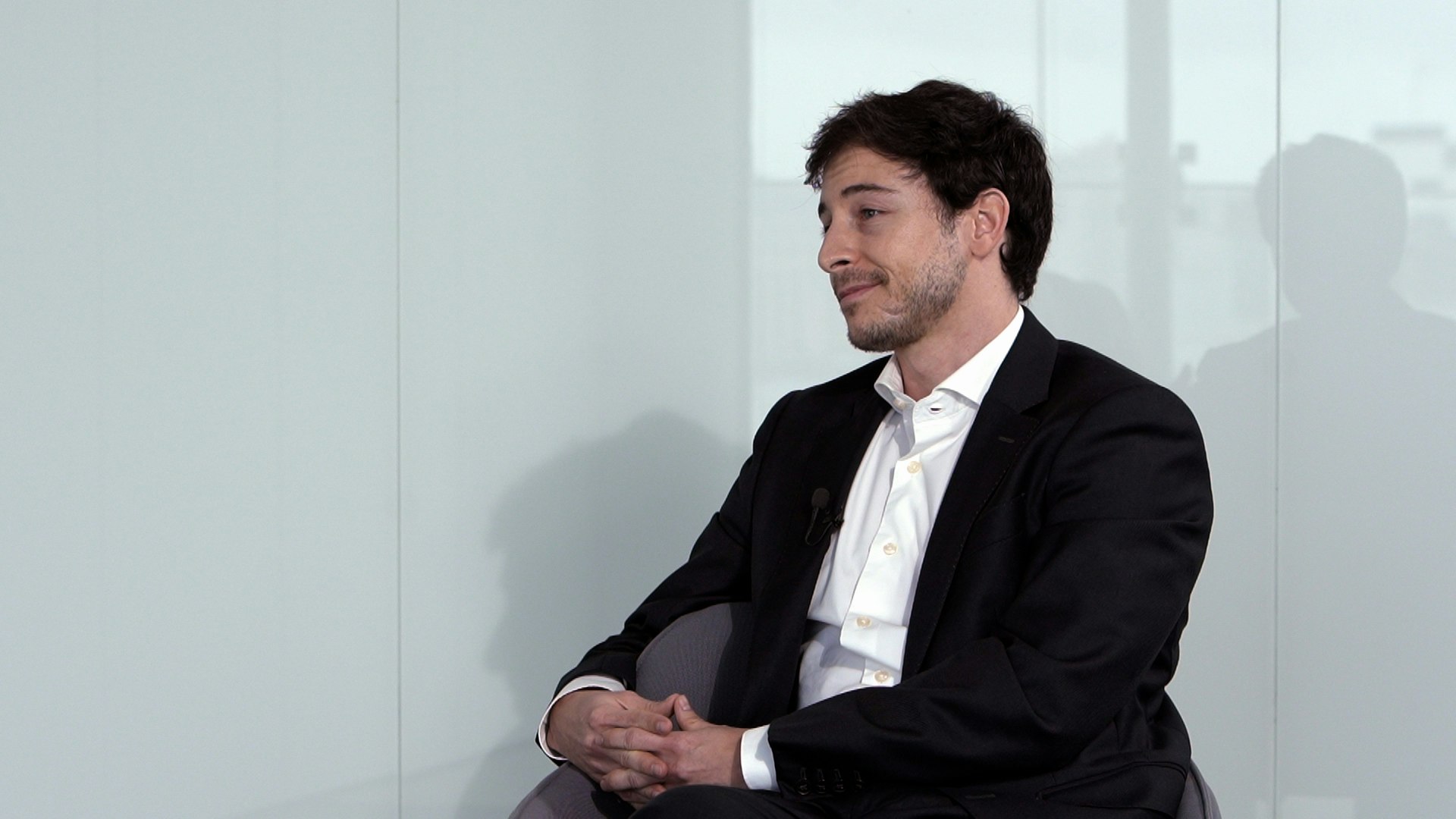
And what you just said, is also part of the brand question that is: I’m going to buy something that I will never use. So, what do I have?
You know that in the last one, in our conversations, also theoretical, but we will work so that this won’t be like that. There is very much that notion of buying Allianz insurance is almost the same thing as going to a luxury store on Avenida da Liberdade and making a product purchase and carrying the bag because nobody thinks about going to a luxury store on Avenida da Liberdade, buying something, doesn't matter what, and then walk around with a plastic bag, without being branded, right?
People want to carry the bag. And what we want is that one day people to buy an Allianz insurance and make a point and are happy to show that they have an Allianz insurance.
It's not that difficult and then yes, the brand will have a very important value. And then yes, the partnerships that you were talking about, the relationships we have with the ecosystems, the brand makes a lot more sense because when you go to buy a car, you like to know that that car has something differentiating.
I also want to believe that one day we will be able to get to one of those partners that doesn't sell insurance but who would like to have the Allianz brand embedded inside their product because it is the Allianz brand. Because it is an Allianz insurance and not an insurance product from another company that doesn't have such a powerful brand. That’s the concept we want.
And going back a little bit to partnerships, and going back a little bit to ecosystems, because it actually has a lot to do with it. We believe that it is easier, obviously with a product, obviously with a defined offer and with an offer that makes sense, it is much easier for a brand that has Allianz, that has a product that has Allianz, to enter this master product let’s say that for another brand that does not have such a big presence and an importance so great for people.
So, it is important to continue to develop the Allianz brand in Portugal. It is important to continue to do work and be present in the day-to-day lives of the Portuguese because I want to believe that eventually the people who buy any product knowing that they have Allianz insurance, will buy more than the other that doesn't have Allianz insurance.
Yes, yes, and increasingly, and you see it not only in brands and insurance companies but in the corporate brands, commitment as I was telling you to sustainability, diversity, promoting the values of society itself is something that brings value to the brand.
And you use a very funny expression which is, to increase the "likeability" of the brand, which is important to have. The higher the “likeability" of the brand, the more the propensity people also have to work with that brand, not only from the perspective of partnerships, of buying, of trusting, which is extremely important also for you and for any company that exists.
You know you were talking about sustainability, and we all know this one very well, sometimes, this greenwashing thing, isn't it? We and I think I can say this in a noticeably obvious way and without any great problem. We don't just talk about sustainability.
If you look a little bit at what sustainability is in the world you will see that Allianz is incredibly involved. To do something for sustainability is for example, not ensuring companies that are not sustainable.
That’s the role of insurance companies, just like banks, to do something for sustainability, for example, not giving credit to companies that are not sustainable. We can do several things. We can stop having cars that run on combustion, we can do these things.
It's all part of it, it's all important, but our main role and our main mission in sustainability is to say things like this: “If you're not sustainable, I won't insure you.” “Ah, but the other one does, that's their problem."
I have to assume that my role for society in terms of sustainability is not to insure those who are not sustainable. This is a role that companies have to really take on. Because if we do this, and if everybody, each one with their business, does this, the thing is easier to happen.
Of course, it promotes well-being in society and the evolution of society, completely different from what obviously can happen if we start giving in business or concerning companies that don't make sense or are they sustainable.
Because saying that we are all sustainable is extremely easy. Once you realize that being sustainable has an impact on the NLP, that is more difficult. And this is what we want to do, and we are doing it today!
To give you an idea three years ago, or four years ago, I can't remember exactly, we received a piece of information from the group saying exactly what kind of business we could not do. Related to company business or related to a certain type of industry, we can't do it. It doesn't matter the price. We won't do it.
And this is a strong message of sustainability that we all have to give. And obviously afterwards we also have to do our own things, right? This is a strong message of sustainability. And we are after that. So, it's not just talk.
Yes, and recently too, taking into consideration this whole macroeconomic and political outlook as well. One thing that has happened was more and more to see the various companies not doing business with a set of entities.
That makes perfect sense, because if you think in the short term, it means one thing, thinking long term is obviously something else. And it has a completely different result for society itself.
Before I finish and a question that I think is important. What are your main concerns? The top three concerns you have today and what is on your agenda for the next one to two years, to accomplish as Chief Transformation and Marketing Officer at Allianz?
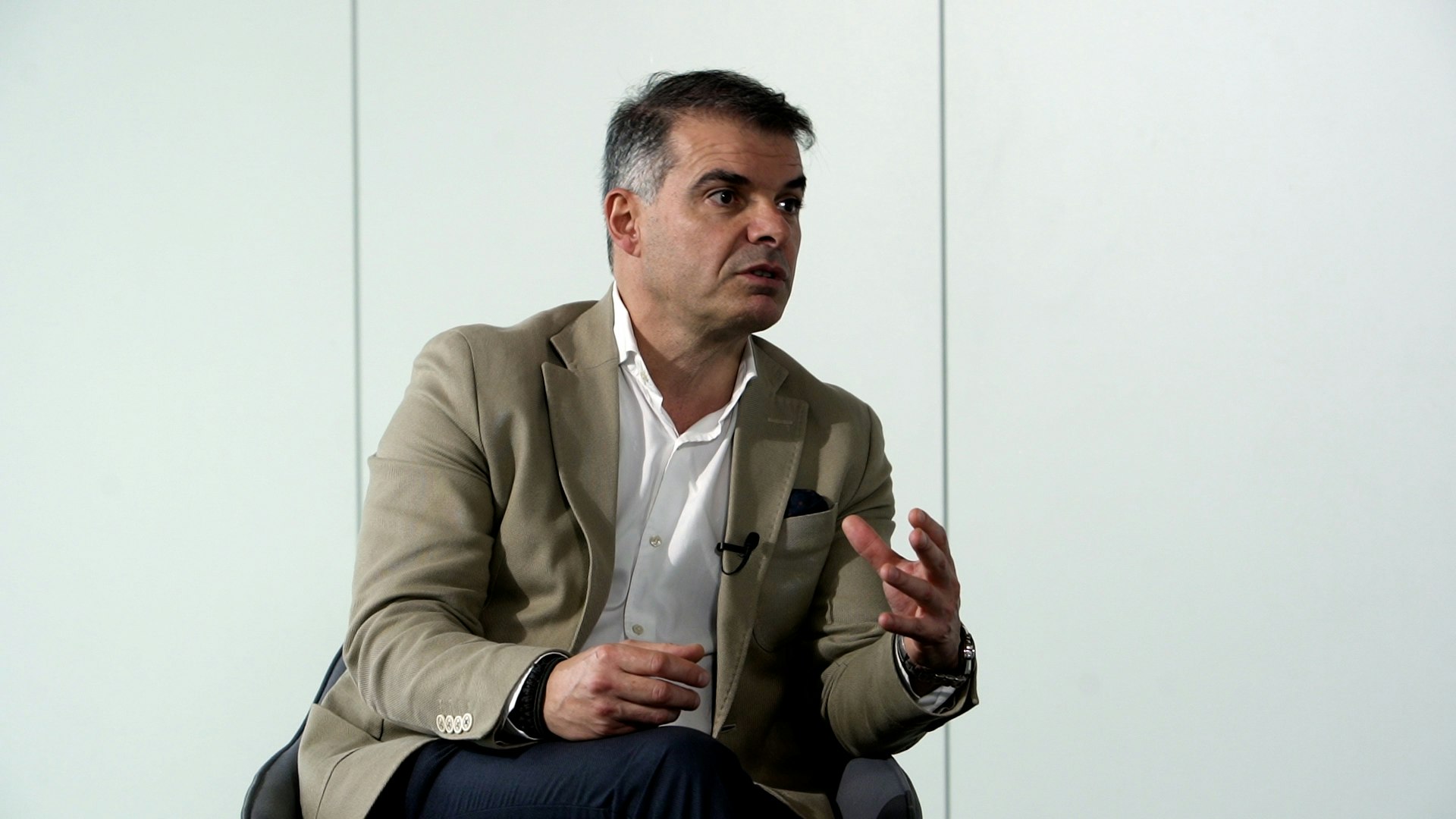
I'm not going to say anything about these situations of war, of inflation...For that, you should call our CFO here. I will focus on the transformation and the branding and marketing part.
Obviously, the client, I know. Don't take this as a client. But even though it's obvious, it's important to say that when I tell you that my concern, one of my main concerns is the client, it's because I think that there is a lot to do.
There's a lot to do at Allianz, but there is a lot to do in the market. We still don't have a clear perception of who this client is, and when I talk about doing something with the client is also to help our main partners, which are the intermediaries, and the brokers, and also for them to work with the clients differently. Because no one has the patience to be knocking on someone's door to sell insurance. That’s no longer, it doesn't exist anymore.
You have to, as you rightly said, it’s that embedded insurance thing, it has to be that way. And so, the client for me is the main thing, is the centre of everything, both in terms of the solution that has to be created for the client, and also at the level of the service that we provide.
It is still not a good service that the companies provide. Companies are very much worried about a number of things. The way we communicate with the customer, the products, but inside the customer, the main message that we have to give inside the companies, and I'm talking now inside my company, is: We have to be a service of high quality.
Don't forget what I said earlier, Allianz obliges all entities worldwide to be Loyalty Leaders in NPS. Why is that? Because nobody can have the Allianz brand and have that perception that we have for the Allianz brand and then not give a quality service.
You can't wait an hour and a half for a tow truck, in the middle of the road and then say, I have Allianz insurance. I’m sorry about that. That’s even an offence. So, this concern for the client is here.
And when we talk about the transformation of the company, when I received this role of Chief Transformation Officer at Allianz, I knew it had a deadline. You can't be Chief Transformation Officer for life. Or else you're doing it all wrong because the transformation has to take place in two or three years. After two or three years, change the name of this, and put me into something else. You can't go on. Transforming what?
So, we have one more year to transform Allianz. And transforming Allianz is very much people's mentality. People have to believe in this transformation, this mentality of looking at things in a way themselves. I always say this, thing that we have, I have a transformation area, but the transformation area is just to facilitate, they are facilitators because the transformation has to come from inside. The transformation area has to transform itself. The sales area has to transform.
What we do and want to do every day, and this is what is one of my main missions, is to talk about what are the trends of transformation. A little bit like what we are doing here. We also do every month a transformation talk, which is to talk a little bit about the transformation of each of the areas so that the other areas know about it.
The communication of the internal transformation is a particularly important thing, because I realized very easily, right at the beginning, that most of the people inside Allianz did not know what we were doing new.
Imagine, we were launching a new tool, super-efficient, and super-effective for the client. Nobody knew. And so, when we did those surveys at the end of the year, everybody says: “We are not very transformative. We are not very innovative.” Okay, transformation is fundamental.
And now you've asked me for a third one. I think that, actually, nowadays people work in a different way and we, above all, have to introduce within the universe of companies, fundamentally an old company such as Allianz which really has an average age much higher certainly than NTT DATA, joy, you know, and well-being, and a lot of what we are also now doing is one of our main concerns is to endow the space with a sense of well-being.
It's almost as our CEO used to say, “I would really like for people when they come in here, they don't even realize that they are inside an office."
So that they have a good feeling of well-being so that they feel good. And do you know why? For two reasons: If people feel good, they are closer to transformation. And if people transform, do not doubt that they will all hit the same spot as the client.
And so, here are my three concerns all connected.
That's right, all connected, all of them with a common thread, as you rightly said, the customer first. It is indeed extremely interesting. Thanks for your time, José, thank you for coming and thank you for accepting the invitation.
Thank you!
